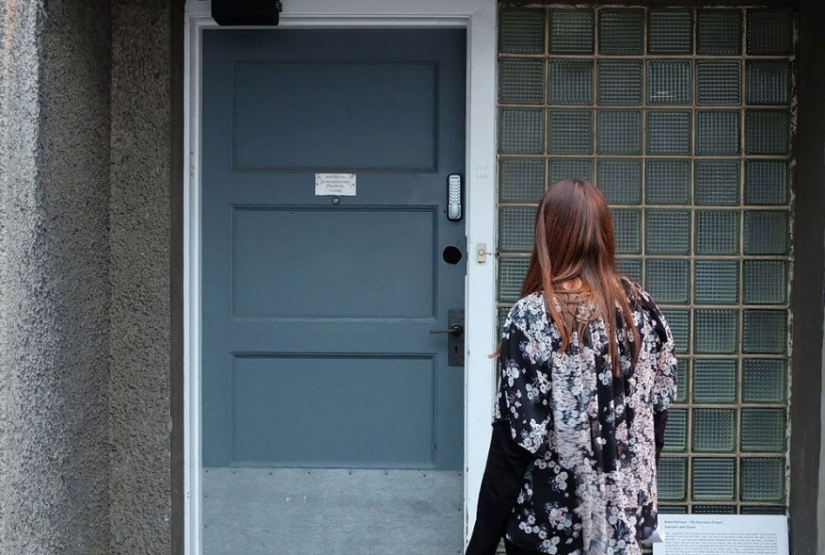Doorway effect: what is it and why should it not be confused with forgetfulness
Categories: Health and Medicine | Science | World
By Pictolic https://pictolic.com/article/doorway-effect-what-is-it-and-why-should-it-not-be-confused-with-forgetfulness.htmlHave you heard of such a phenomenon as the doorway effect? To put it simply: have you ever walked into a room and immediately forgot why you were there? We are sure that yes, because many people suffer from such "memory lapses". But the fact that they write it off as simple forgetfulness is wrong.
In fact, the doorway effect is a much more interesting psychological phenomenon. We invite you to learn more about it.

I'm sure you've had it happen that you've walked into a room and completely forgotten why you came here. Quite often, such episodes occur in public, which makes people feel shy and uncomfortable. However, experts say, you should not blame your forgetfulness for this-the reason lies in the "doorway effect", which almost all people are subject to.

The thing is that the human brain is at different levels of perception throughout the day. He can think about a common goal, individual plans, or focus on specific actions. There is a well-known parable about three builders who were asked what they were doing. The first said, "I'm laying a brick," the second, "I'm making a wall," and the third, " I'm building a temple." Although, in fact, they all did the same thing, each perceived their work differently.
So the human brain during the day "jumps" from one level of perception to another. And it is at the moments of such "switches" that the "doorway effect" is observed.

It is expressed not only in the situation described above (when you entered the room and forgot why you came). We are sure that more than once during a conversation with a friend/friend, you have your own thought or question. Observing the rules of decency, you wait until the person finishes the speech, so that you can then express your opinion… But at the right moment, you just forget what you wanted to say. This is also the "doorway effect".

Let's explain it with an example. When you go to work, several plans "work" in your head at once – "Leave the room", "Get in the car", "Go to the office" , etc. Therefore, if you suddenly forget the keys and want to go back to the apartment for them, the plan "Keys" will be replaced by the plan "Go to the room". Just imagine how much information our brain processes at the same time!
Each of these stages requires special attention, and thoughts about the need to "take the keys" seem to break into this well-planned interweaving of events. For some time, this idea is still in my head, but when a person enters an apartment, his mental and physical environment changes. He begins to think about how soon he will get to the office, that it would not hurt to remove this spot on the carpet, and at the same time pour more food for the cat… Therefore, moving from room to room, continuing on his way and thinking about other things, a person can easily forget what was the original purpose of his trip. This phenomenon is called the "doorway effect".

And we learned about it in 2011 in the course of research conducted by a psychologist from the United States, Gabriel A. Radvansky (Gabriel A. Radvansky) and his colleagues. Experts created a virtual model of a large house, where the participants of the experiment had to move around and perform various tasks for memorization.
The researchers noticed that the subjects most often forgot about the purpose of movement when they passed through the doorway. When conducting observations in a real house, this effect was repeated. Radwansky explained this by saying that at the moment of leaving or entering a room, our memory creates a "new chapter", so it becomes more difficult to remember the old one.

Now, by understanding how this mechanism works, you can avoid some awkward situations. For example, if during a conversation with a friend, you have some idea, quickly write it down on a piece of paper, and then express it to the interlocutor. If you forget your keys and go back to your apartment for them, focus your attention on the keys, do not evaluate the appearance of the wallpaper, do not think about your plans for the day, do not stop to have a nice conversation with your neighbors – just go for the keys!
Have you ever experienced the "doorway effect" in real life? Have you noticed in which situations this happens most often?
Keywords: Science | Health and medicine | World | Man | Scientists | Memory | Effect | Psychology
Post News ArticleRecent articles

It's high time to admit that this whole hipster idea has gone too far. The concept has become so popular that even restaurants have ...

There is a perception that people only use 10% of their brain potential. But the heroes of our review, apparently, found a way to ...
Related articles

Immunity to poisons at all times been the dream of all authority. List of popes, kings and emperors, gave his soul to God through ...

Yes, Pets benefit our health and it is proven by science. Their very existence certainly makes us happier, but also prolongs life. ...

Walking through this picturesque bridges, you can admire the views from these stunning views and breathtaking landscapes. We invite ...

New Year's is a time to surprise and delight loved ones not only with gifts but also with a unique presentation of the holiday ...